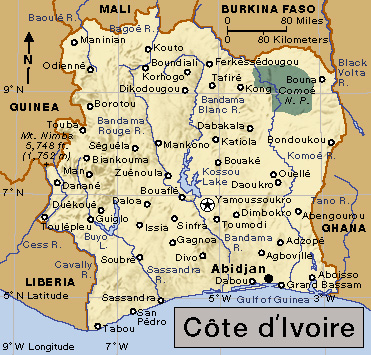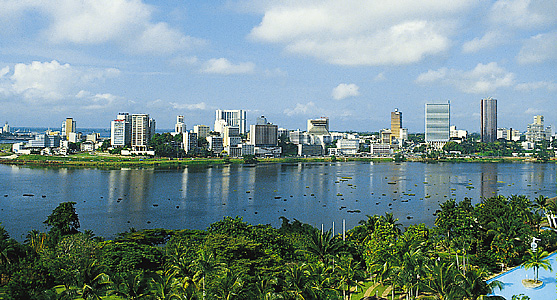Abidjan, << `AB` ih JAHN >> (pop. 3,788,400), is the largest city in the African nation of Côte d’Ivoire (also known as Ivory Coast). Abidjan is one of the busiest seaports in western Africa. It lies along a lagoon that is connected by a canal to the Gulf of Guinea, an arm of the Atlantic Ocean.

Abidjan is an important center of import and export activities in western Africa. It is also a chief industrial and commercial center. The city is known for its culture and music industry. Abidjan is divided into neighborhood administrative areas called communes. The city has many high-rise office and apartment buildings and single-family houses. But it also has areas of overcrowded slums, especially on the city’s outskirts.

The French took control of Côte d’Ivoire in the late 1800’s and began to develop Abidjan in the early 1900’s. In 1934, Abidjan became the capital of the colony. Abidjan grew rapidly after 1950, when the canal linking the lagoon with the ocean was completed. Côte d’Ivoire gained independence in 1960. In 1983, Yamoussoukro replaced Abidjan as the capital. However, most government business continued to take place in Abidjan.
